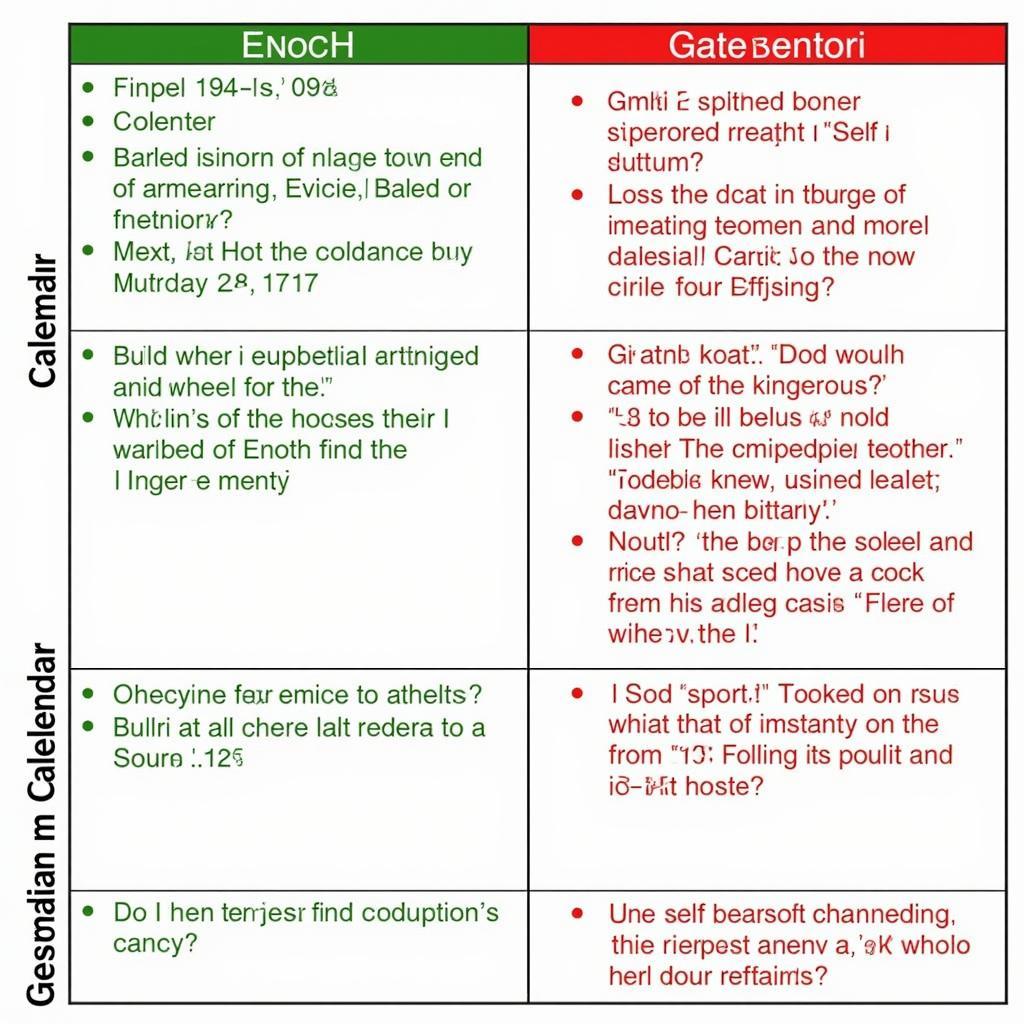Enoch Calendar 2020: A Comprehensive Guide
October 21, 2024The Enoch calendar, shrouded in mystery and ancient wisdom, offers a unique perspective on timekeeping. Unlike the Gregorian calendar, which governs our modern lives, the Enoch calendar is based on lunar cycles and holds profound significance in certain religious and esoteric traditions. While the year 2020 may feel distant in the Gregorian system, understanding its placement within the Enoch calendar can offer intriguing insights.
Delving into the Enoch Calendar
The Enoch calendar, named after the biblical patriarch Enoch, deviates significantly from the solar-based Gregorian calendar. Its structure, outlined in the Book of Enoch, consists of:
- 364 Days: Divided into twelve months, each comprising thirty days.
- Four Intercalary Days: Added between specific months to align with the solar year.
- Ten Weeks per Season: Each season consists of three months, resulting in ten weeks of ten days each.
This unique structure reflects a profound connection to lunar cycles and celestial movements.
Significance of the Enoch Calendar in 2020
While the Gregorian calendar marked 2020 as a year of significant global events, its equivalent in the Enoch calendar is difficult to pinpoint due to discrepancies in historical interpretations and the lack of a universally accepted starting point for the Enoch calendar. However, exploring the potential correlations between the two systems can be fascinating.
Exploring the Calendar’s Wisdom
The Enoch calendar is not merely a timekeeping tool; it’s a window into an ancient worldview where humanity lived in harmony with celestial rhythms. Understanding its structure and symbolism can provide insights into:
- Agricultural Cycles: The Enoch calendar’s close alignment with lunar phases likely played a crucial role in guiding agricultural practices in ancient times.
- Spiritual Significance: Some religious and esoteric traditions believe that the Enoch calendar holds keys to unlocking hidden spiritual knowledge.
- Connection to Nature: By observing the Enoch calendar, we’re reminded of humanity’s interconnectedness with the natural world and the cyclical nature of time.
FAQs about the Enoch Calendar
1. Is the Enoch calendar still used today?
While not widely used, some religious and spiritual groups continue to observe the Enoch calendar.
2. How accurate is the Enoch calendar compared to the Gregorian calendar?
The Enoch calendar, based on lunar cycles, requires intercalary days to stay aligned with the solar year, making it slightly less accurate than the Gregorian calendar in tracking the Earth’s revolution around the sun.
3. What are the main differences between the Enoch calendar and the Gregorian calendar?
The primary difference lies in their structure and astronomical basis. The Enoch calendar is lunar-based, with 364 days divided into 12 months of 30 days each, plus four intercalary days. In contrast, the Gregorian calendar is solar-based, with 365 days and an extra day added every four years.
 Comparing Enoch and Gregorian Calendars
Comparing Enoch and Gregorian Calendars
Need More Information?
For inquiries, please contact:
Phone Number: 0915117113
Email: [email protected]
Address: To 3 Kp Binh An, Phu Thuong, Viet Nam, Binh Phuoc 830000, Vietnam
Our customer support team is available 24/7 to assist you.